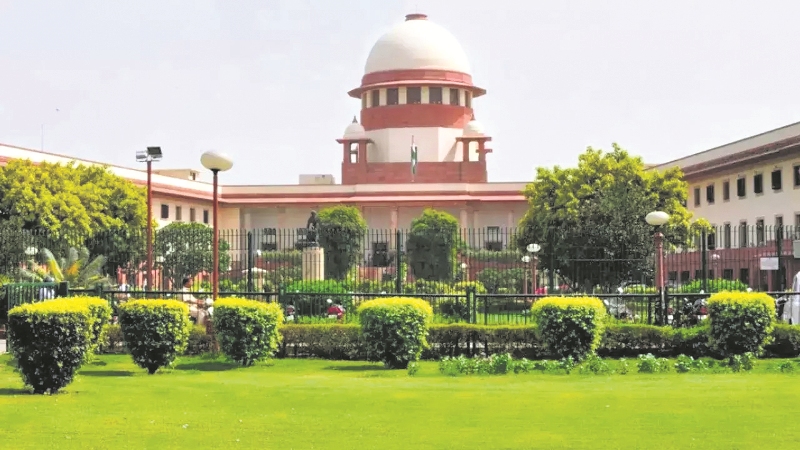Guwahati: The Supreme Court on Tuesday stayed the deportation of a woman from Assam who was declared a “foreigner” by Foreigner’s Tribunal under Section 2(a) of the Foreigners Act, 1946.
The woman claimed that generations of her family have lived in Assam and have documents to prove their Indian nationality.
A Bench of Justices K.V. Viswanathan and N. Kotiswar Singh ordered the Union government not to take any coercive steps against Jaynab Bibi, represented by advocates Fuzail Ahmad Ayyubi and Akansha Rai.
The court also issued a formal notice to the Centre and scheduled the next hearing for August 25.
The petitioner, Jaynab Bibi, claiming to be a citizen of India by birth, challenged the High Court’s order dated February 17, 2025. The High Court had dismissed her writ petition challenging a Foreigners Tribunal opinion dated May 20, 2017, which held her to be a foreigner.
Bibi said she is an Indian citizen by birth and has lived in Muamari village under Dhing Mouza in Assam’s Nagaon district her entire life.
Ayyubi said the Foreigners Tribunal had declared his client a foreigner in an “arbitrary and mechanical manner”, and the decision was confirmed by the Gauhati High Court in February 2025.
Referring to a 2024 Supreme Court ruling, the petitioner’s counsel argued that suspicion alone is not sufficient to classify individuals as foreigners and that the burden of proof lies with the authorities making such claims.
The court had earlier expressed concern about the random and unsubstantiated branding of individuals as foreigners in Assam.
The petitioner argued that the NRC list of 1951 had the name of the petitioner’s grandfather, as did the voters’ lists of 1965 and 1970. Likewise, the voters’ lists of 1989, 1997 had the names of her parents, while subsequent lists had her name and that of her husband. Yet, she was declared an “illegal immigrant”.
The petitioner also drew the court’s attention to how the Tribunal and the High Court did not weigh in the fact that she had records of the gram panchayat establishing her lineage.
ALSO READ: Gauhati High Court calls for training of Foreigners Tribunal staff in Assam
She argued that the Supreme Court, in a reported decision, had held that certificates issued by gram panchayats were admissible to establish legacy linkage provided the records were proven authentic and duly verified.















